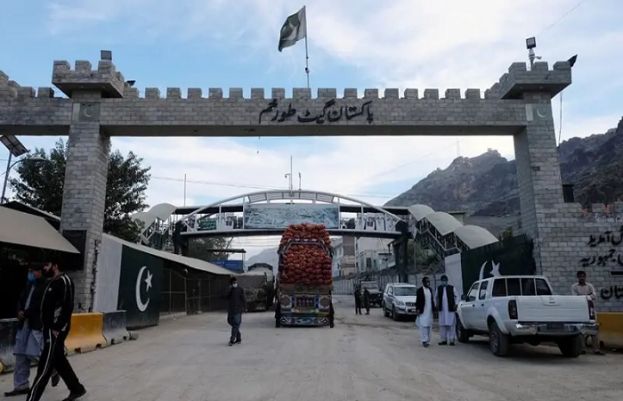A day after Islamabad and Kabul agreed to uphold a ceasefire during talks in Istanbul, Pakistan reopened the Torkham border crossing on Saturday to facilitate the return of illegal Afghan refugees. The repatriation of Afghan families from Pakistan had been suspended on October 11 following border clashes between the two neighbouring countries. These clashes, which lasted several days before a ceasefire was brokered in Doha on October 19, had prompted Pakistan to close all its borders with Afghanistan for trade and travel. Deputy Commissioner Khyber, Bilal Shahid, confirmed that the Torkham crossing was temporarily reopened after 20 days to allow Afghan nationals to return home. Hundreds of Afghans arrived at the immigration centre, where authorities completed the necessary formalities before permitting them to cross. However, trade and pedestrian movement across the border will remain suspended until further notice. Following six days of talks, Pakistan and the Afghan Taliban regime agreed to uphold the ceasefire, Turkiye’s foreign ministry announced Thursday. “Further details on the implementation will be finalised in a principal-level meeting in Istanbul on November 6, 2025,” read a joint statement. The talks, mediated by Turkiye and Qatar, were held in Istanbul from October 25–30 to solidify the Doha ceasefire agreement. “All parties have agreed to implement a monitoring and verification mechanism to ensure peace is maintained and penalties imposed on any violators,” the statement added. A day earlier, Foreign Office spokesperson Tahir Hussain Andrabi emphasised that Islamabad does not seek further tensions with Afghanistan and expressed hope that the Taliban regime would prevent the use of its territory against Pakistan. He had said Pakistan had repeatedly provided evidence of the activities of “Fitna al-Khawarij” and “Fitna al-Hindustan” on Afghan soil. Commenting on tensions on the Pakistan-Afghanistan border, the spox had said Pakistan gave a strong response to aggression from the Afghan side. “Pakistan will defend its territorial integrity and sovereignty under all circumstances.” Islamabad-Kabul tensions Pakistan has been grappling with rising terror incidents, particularly in Khyber Pakhtunkhwa (KP) and Balochistan, since the Afghan Taliban regime took power in 2021. The government in Islamabad has repeatedly urged the Taliban regime to rein in terrorist groups responsible for countless attacks in Pakistan. However, the Taliban regime largely remained indifferent to Pakistan’s demands and provided refuge to multiple terrorist groups targeting security forces and civilians. Instead of addressing Pakistan’s concerns about cross-border terrorism, the Taliban regime resorted to unprovoked firing along the border on October 12. The Pakistan Armed Forces retaliated swiftly, killing over 200 Taliban fighters and affiliated militants; however, as many as 23 Pakistani soldiers were martyred during the border clashes. The security forces also conducted strikes inside Afghanistan, including in Kabul, destroying terrorists’ hideouts in the country. Hostilities between forces of the two nations ceased after Pakistan accepted the Taliban regime’s request for a temporary ceasefire on October 17. Delegations from the two countries later met for talks mediated by Qatar in Doha, where they agreed on a ceasefire agreement. Turkiye then hosted the second round of talks in Istanbul, which began on October 25 and continued till October 31. The two sides would meet again in the next round scheduled for November 6.
Torkham Border Reopens After 20 Days, Pakistan Resumes Afghan Repatriation

